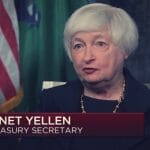A federal proposal that seeks to ban banks from trading with their own money has found few friends in Washington and on Wall Street.
Now, even some of the rule’s authors are joining the bandwagon of detractors.
Federal regulators responsible for writing the so-calledVolcker Rule told Congress on Wednesday that the proposal, a central component of the Dodd-Frank financial regulatory overhaul, was difficult to interpret and could crimp the bottom line at Wall Street banks. While some Democratic lawmakers and proponents of the crackdown on proprietary trading cast doubt on the alarming assertions, some regulators warned that the rule would allow foreign financial firms to steal business from banks in the United States.
“United States banks competing with these foreign banks will operate at a competitive disadvantage,” John Walsh, the acting comptroller of the currency, said in prepared remarks before the House Financial Services Committee.
A disparate collection of federal regulators first introduced the Volcker Rule in October, months behind the timeline spelled out in the Dodd-Frank Act. The proposal spans roughly 300 pages and poses some 1,000 questions for the public to address, reflecting it complexity and the thorny task it presents for regulators.











